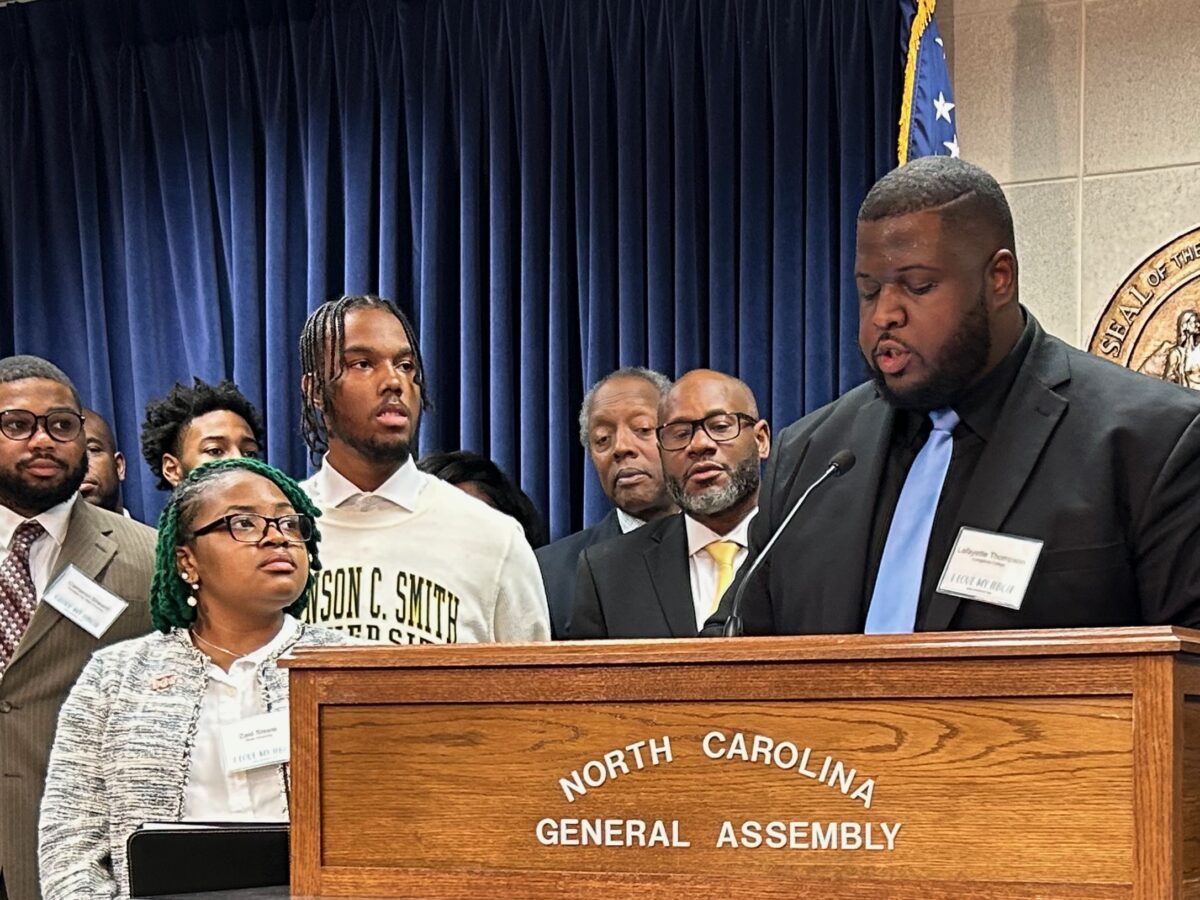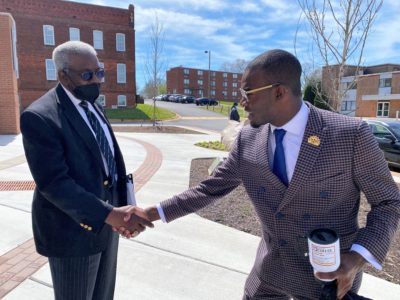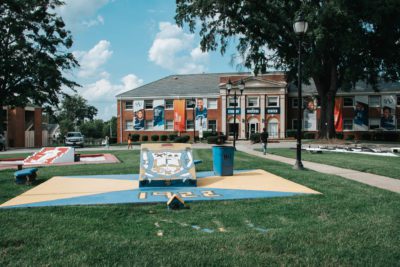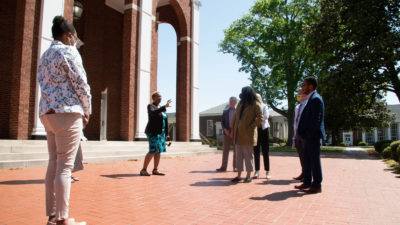
|
|
The week after the announcement that lawmakers had formed a bipartisan historically Black colleges and universities (HBCU) Caucus, HBCU students visited the legislature to advocate for their schools.
A group of students from HBCUs across the state held a press conference Wednesday to talk about the importance of their schools, the need for better funding, and the importance of their voices being heard.
“Many of us have been convinced that our vote doesn’t matter. But I am here to say that that isn’t true,” Winston-Salem State University student David Wilson said. “Our elders and ancestors fought for their freedom and rights … and that is something that we need to continue.”
Many students talked about the importance of being able to speak out, both at the ballot box and in public.
“Historically Black colleges and universities do have significant impact in our country,” said Lafayette Thompson, a student from Livingstone College. “We do matter. And we deserve a government that hears us all.”
Multiple students referred to the $1.7 billion impact HBCUs have on the economy in North Carolina.
Timesha Hall, a student at St. Augustine’s University, said HBCUs show Black students what is possible for them, be it becoming a doctor, lawyer, activist, or CEO.
“I look forward to the trail that each of us blaze,” she said.
Sen. Gladys Robinson, D-Guilford, a co-chair of the HBCU caucus, praised the students and talked about some of the goals her caucus will be seeking for HBCUs.
“This is an awesome day, isn’t it? These are future legislators. These are future entrepreneurs. We are so proud of all of you,” she told the students.
She talked about the need to educate lawmakers about HBCUs and their students, as well as advocate for better funding for capital needs, faculty pay, and other financial issues.
“Our salaries of our faculty at most HBCUs are not on par with the other white public universities in this state,” she said. “We lose good faculty … they go where the money is.”
She said that when it comes to funding HBCUs generally, her caucus hopes to have a bipartisan agreement on what funding for HBCUs should be.
Rep. Zack Hawkins, D-Durham, a co-chair of the HBCU caucus, said that HBCUs have the ability to maximize the potential of students such as those who gathered at the press conference. But if the state doesn’t properly support the schools, many students could be left behind.
“They are taking people like me, they are taking people like Sen. Robinson and allowing us to use our voices for good,” he said of HBCUs. “Legislators, be on notice. (HBCU students) will be back.”





